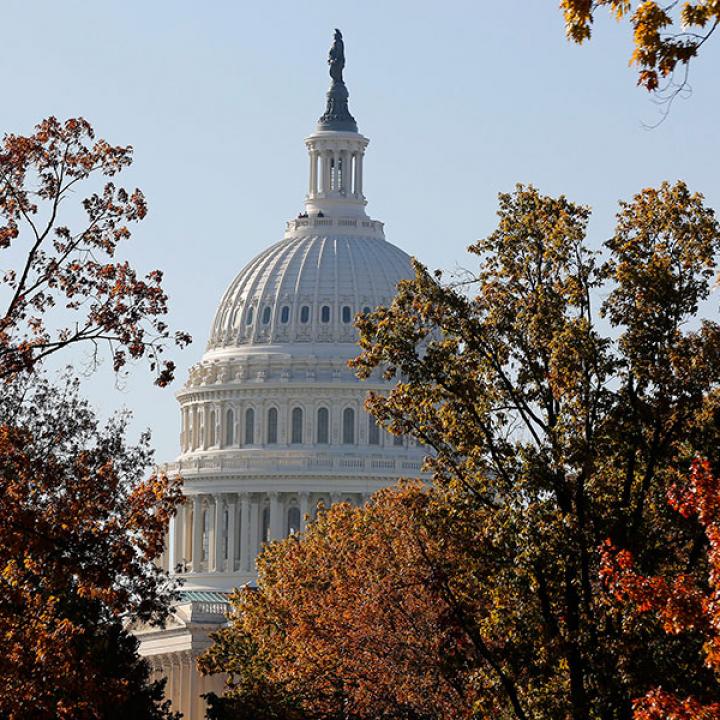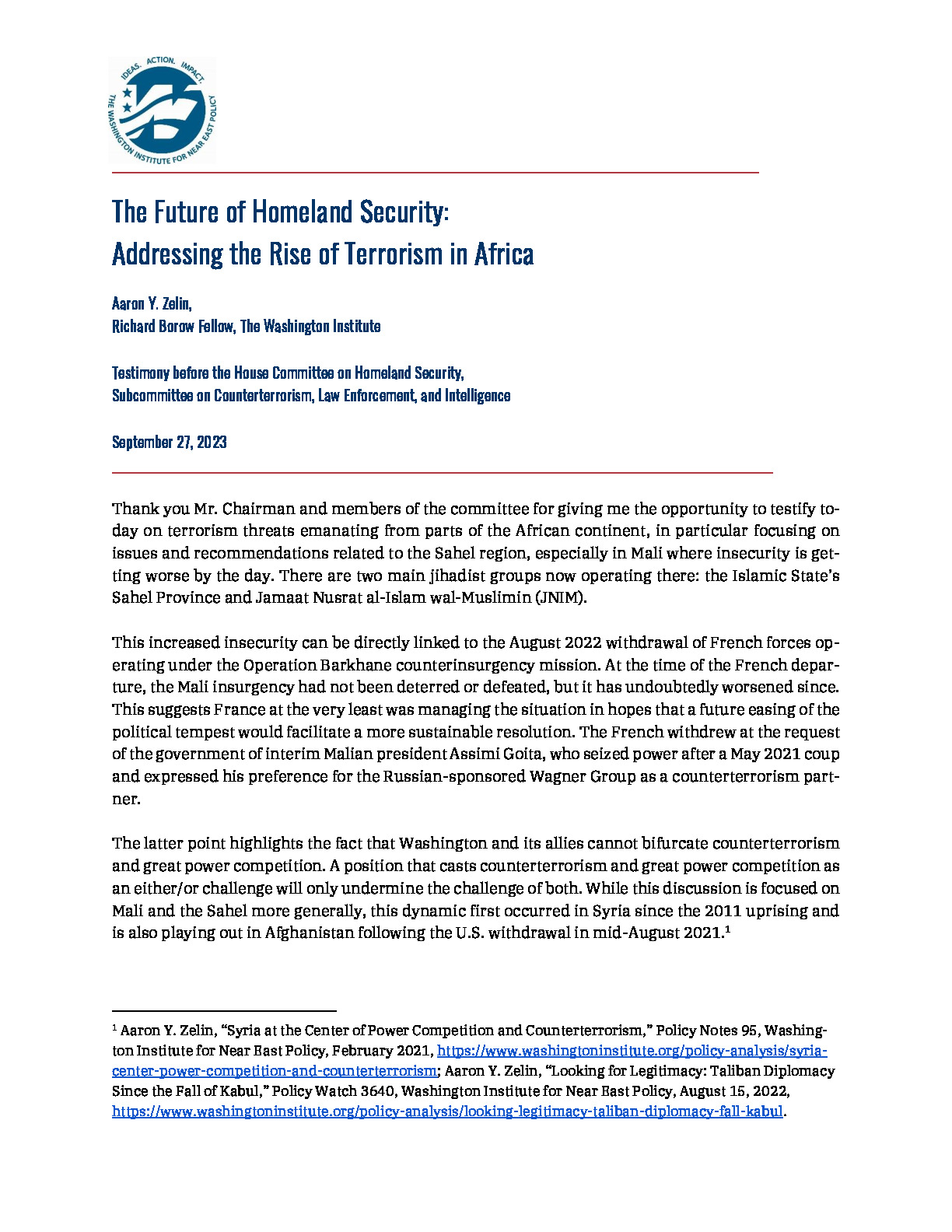
- Policy Analysis
- Congressional Testimony
The Future of Homeland Security: Addressing the Rise of Terrorism in Africa
Also published in House Committee on Homeland Security

While finding ways to fill the vacuum left by the withdrawal of French forces, Washington and its allies must not forget that counterterrorism and great power competition with Russia are inextricably linked in these conflict zones.
The following is an excerpt from prepared remarks submitted to the House Committee on Homeland Security, Subcommittee on the Middle East, North Africa, and Global Counterterrorism. To read the full testimony, download the PDF above.
Thank you Mr. Chairman and members of the committee for giving me the opportunity to testify today on terrorism threats emanating from parts of the African continent, in particular focusing on the Sahel region and Mali, where insecurity is getting worse by the day. There are two main jihadist groups now operating there: the Islamic State’s Sahel Province and Jamaat Nusrat al-Islam wal-Muslimin (JNIM). This increased insecurity can be directly linked to the August 2022 withdrawal of French forces operating under the Operation Barkhane counterinsurgency mission. At the time of the French departure, the Mali insurgency had not been deterred or defeated, but it has undoubtedly worsened since. This suggests France at the very least was managing the situation in hopes that a future easing of the political tempest would facilitate a more sustainable resolution. The French withdrew at the request of the government of interim Malian president Assimi Goita, who seized power after a May 2021 coup and expressed his preference for the Russian-sponsored Wagner Group as a counterterrorism partner. The latter point highlights the fact that Washington and its allies cannot bifurcate counterterrorism and great power competition, as seen previously in Syria and other locales...




